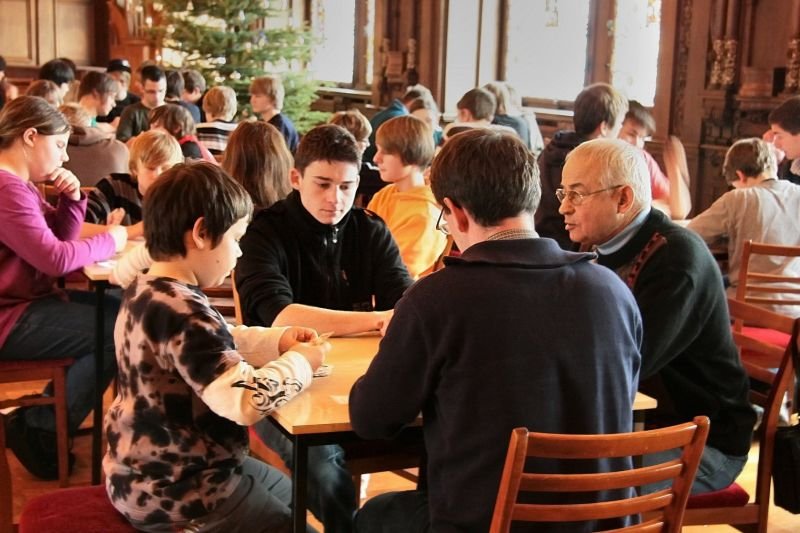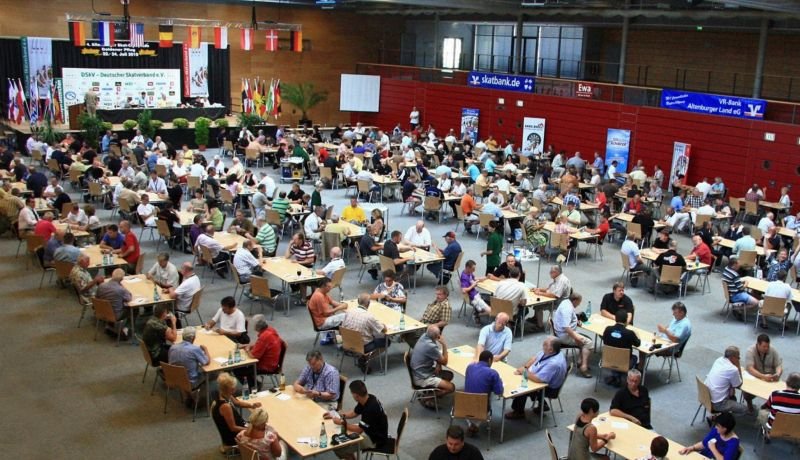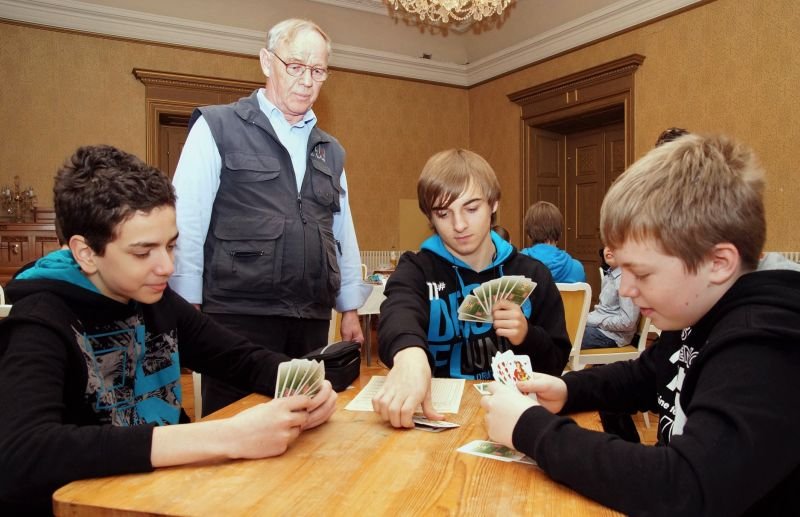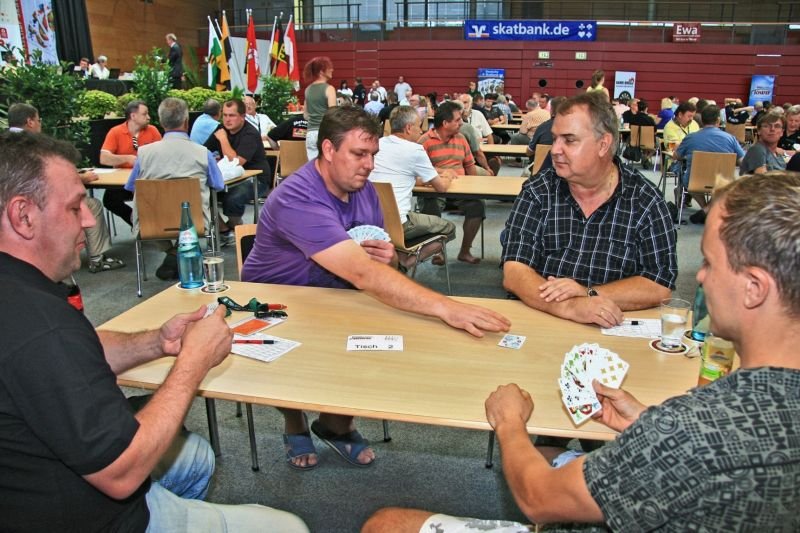Nationwide Inventory of Intangible Cultural Heritage
Playing Skat
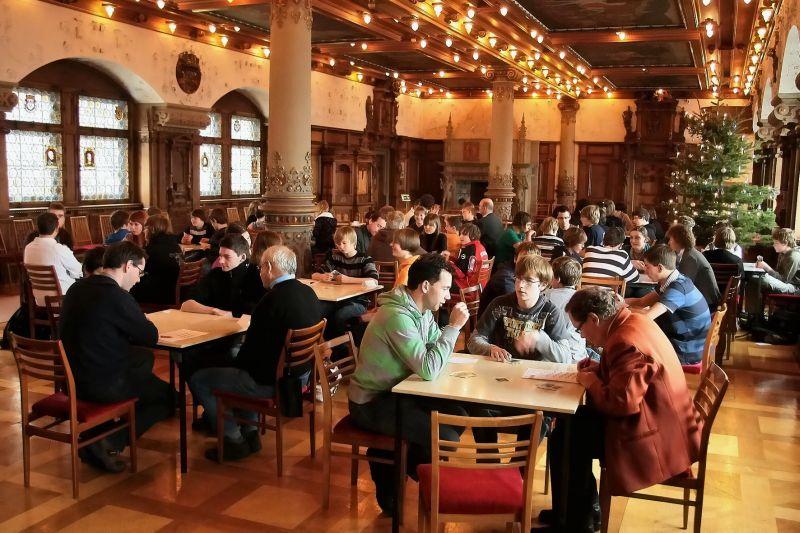
Skat is a card game, which is played competitively or as leisure activity across societal, gender and generation groups. A Skat game requires three players. It is both a strategy and entertainment game, which requires mathematical and logical but also imaginative skills to plan moves, relate cards to each other, and calculate game results.
Facts & figures
Crucial date: all seasons
Inscription: 2016
Domains: oral traditions and expressions; social practices, rituals and festive events
Where to find: nationwide (also abroad)
Contact
Deutscher Skatverband e.V.
Jan Ehlers (Vice President)
@email
www.deutscherskatverband.de
Luck only plays a role when the playing cards are dealt but apart from that the game is only influenced by human competence.
Playing Skat brings people of different age groups, nationalities and societal groups together, fosters social competences and communality, is fun and contributes to recreation from daily routine. Skat is passed on from generation to generation, oftentimes within the family. Additionally, the “Deutsche Skatverband e.V.” and numerous Skat associations feel responsible for sustaining the game and organize regular events and tournaments.
The game was invented in 1813 by a couple of respected citizens of Altenburg on the basis of already existing European card games. 1927 the “Deutsches Skatgericht” was founded, a still existing and internationally operating audit authority, which defines the International Skat Order.
